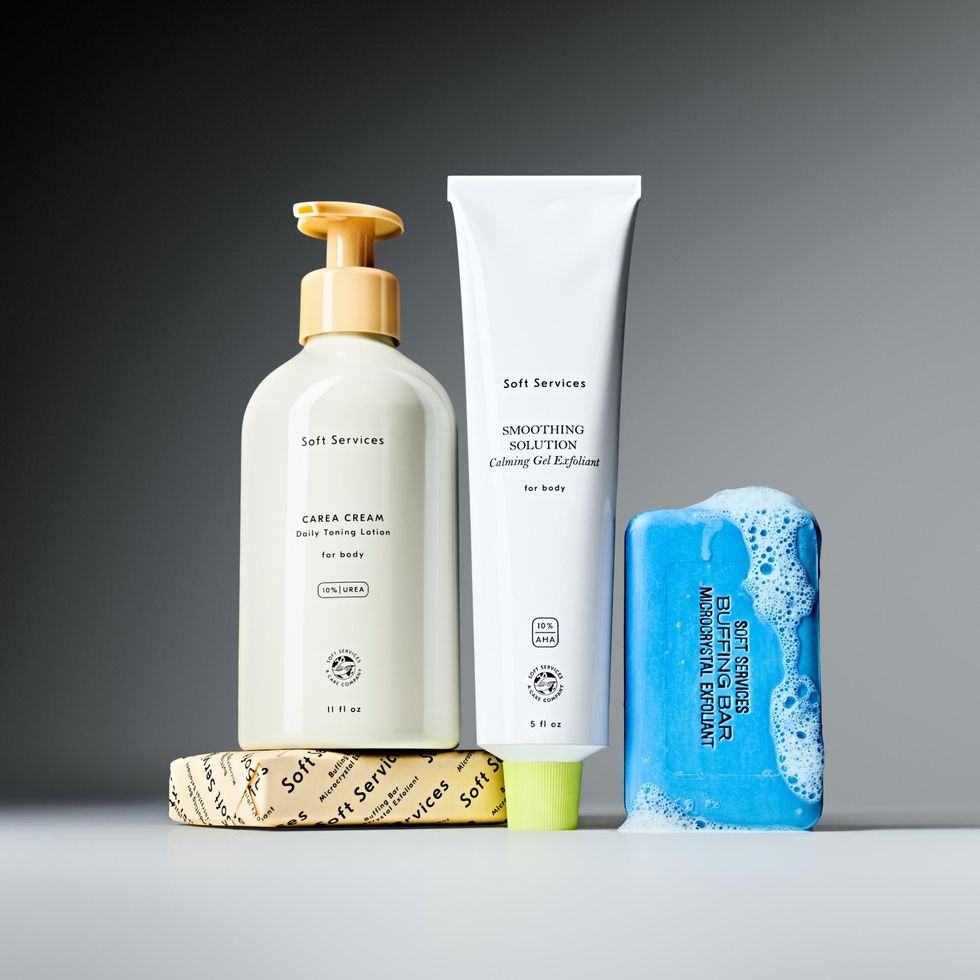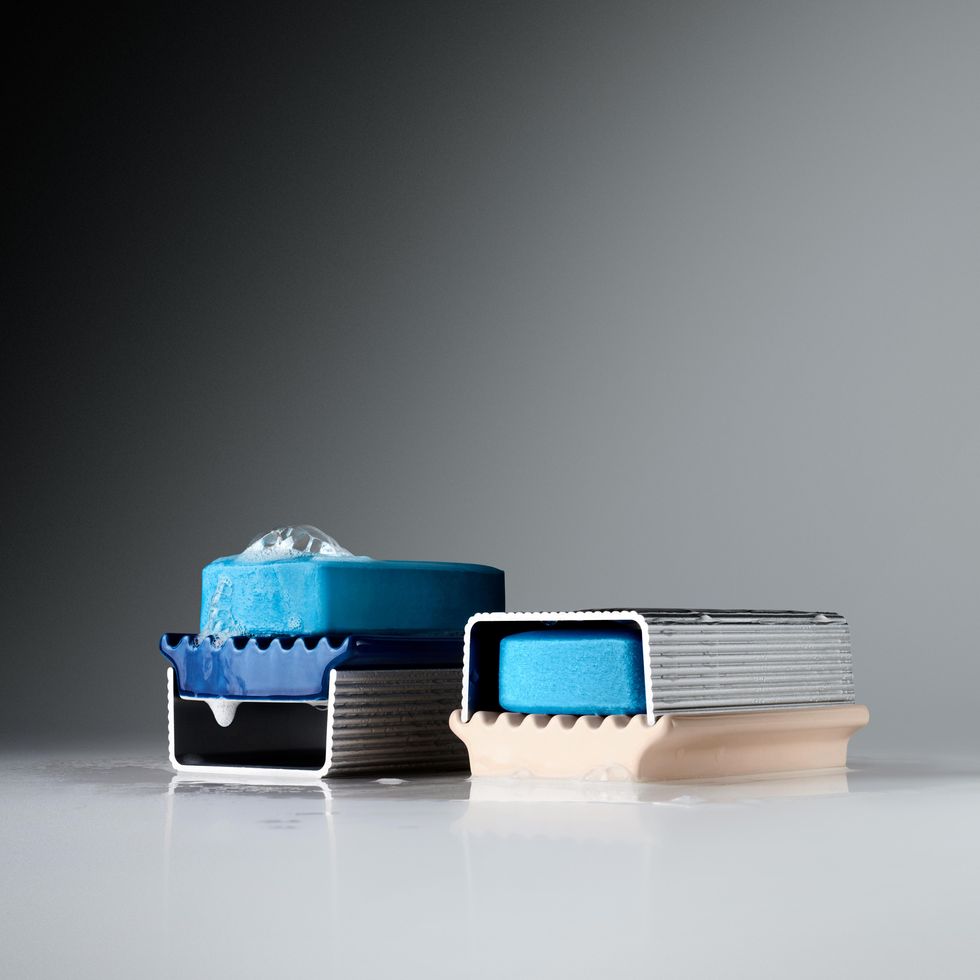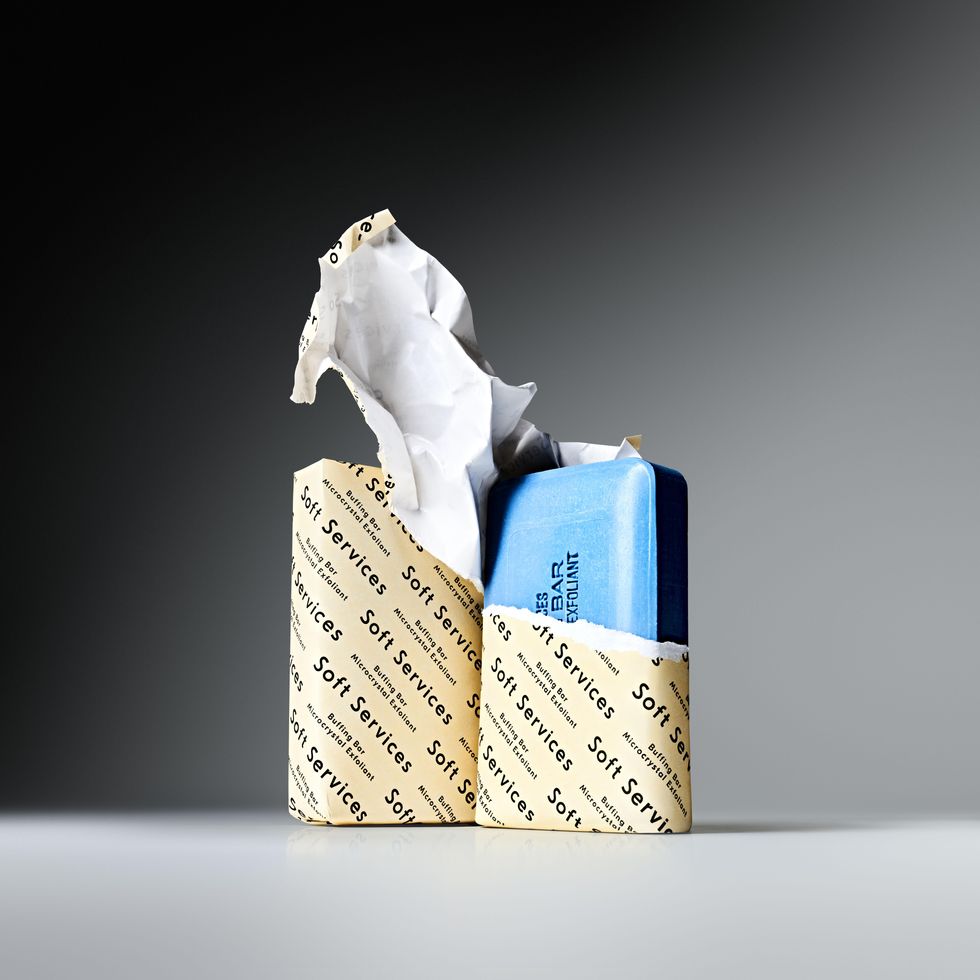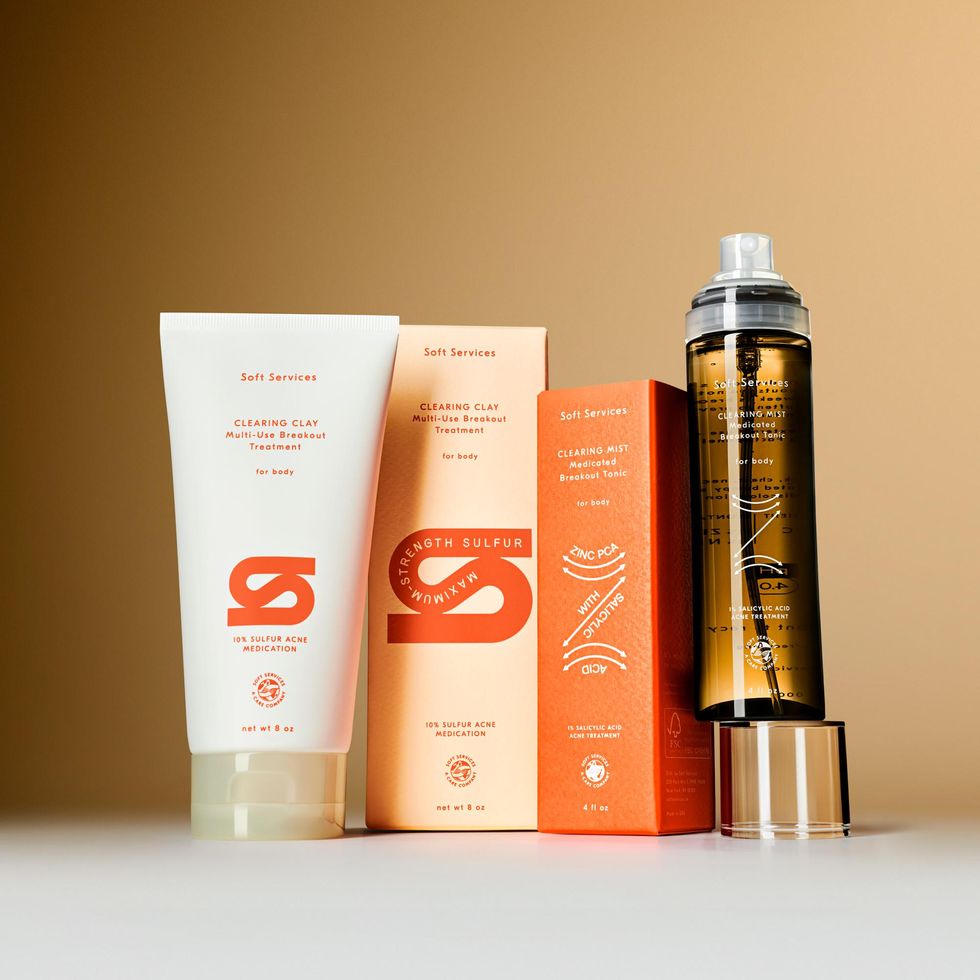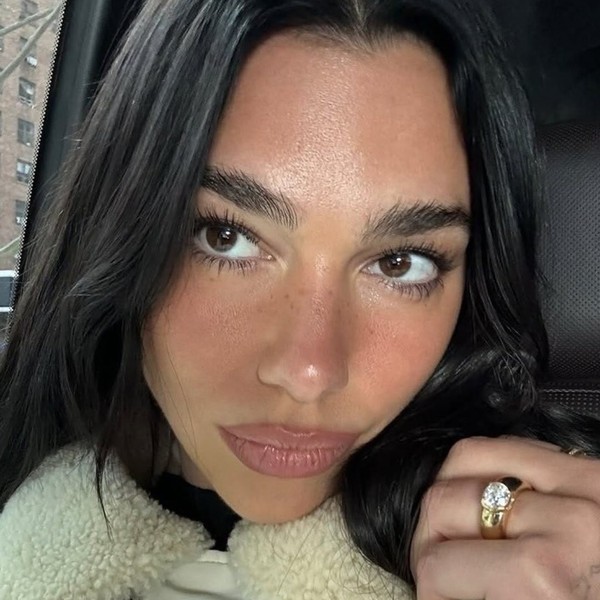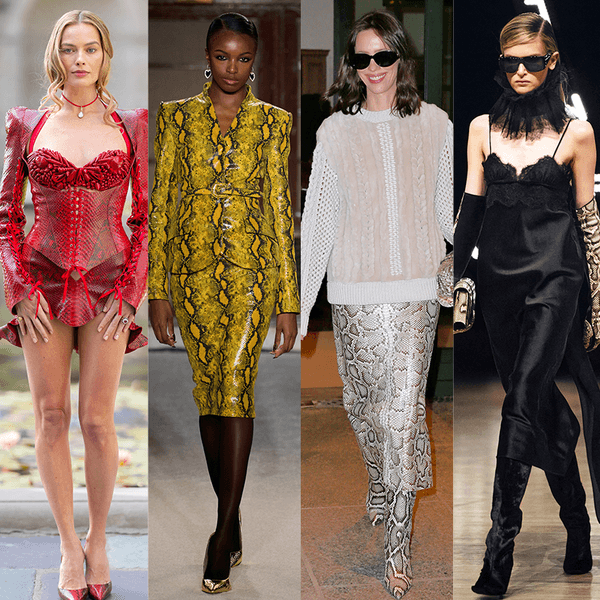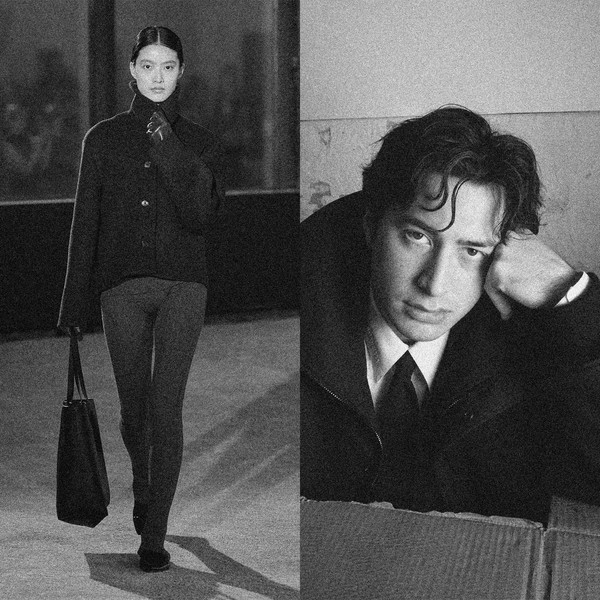Annie Kreighbaum Is All About Leaning Into Beauty Taboos
The Soft Services cofounder reflects on almost a decade in the industry.
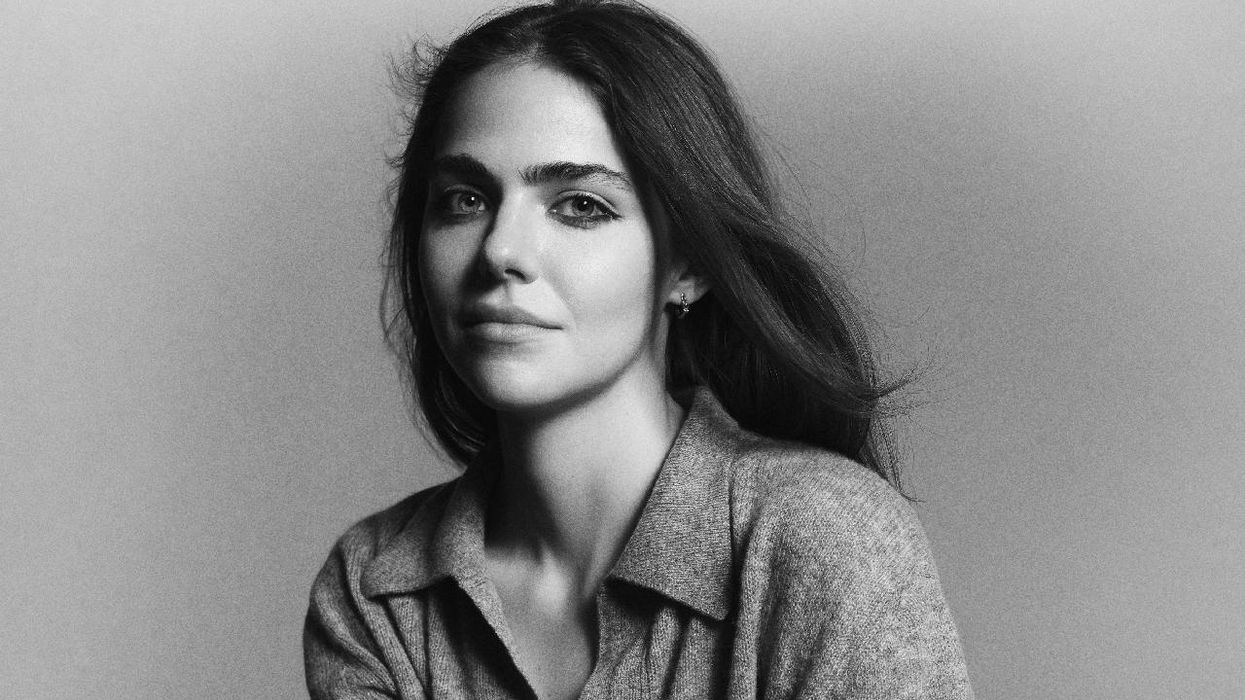
Welcome to On Beauty, a series where we take a deep-dive look into one person's relationship to beauty, how that relationship has transformed over the years, and how they experience being seen. This week, we're talking to Annie Kreighbaum, the cofounder of Soft Services, about growing up in Texas, her time working in editorial, and why she decided to launch a body-care brand.
"My earliest beauty memories were in department stores. I’d go to Neimans Marcus with my mom, and we’d stop by the Chanel counter, the Bobbi Brown counter, the Erno Laszlo counter. I was also really into the Spice Girls and I would put together a whole look, and I’d spray-paint my hair red with temporary hair dye. I’ve always found makeup and figuring out what techniques work for you so interesting.
"I got into beauty very early, around middle school. I think because I had the most products, I was always the one who ended up doing everyone’s makeup before a dance or before we’d go out. I love it. Me and my cofounder, Rebecca [Zhou], we always come back to the idea that beauty is our love language. Telling someone, ‘Hey, you should try this product,’ or doing someone’s eyeliner is so intimate."
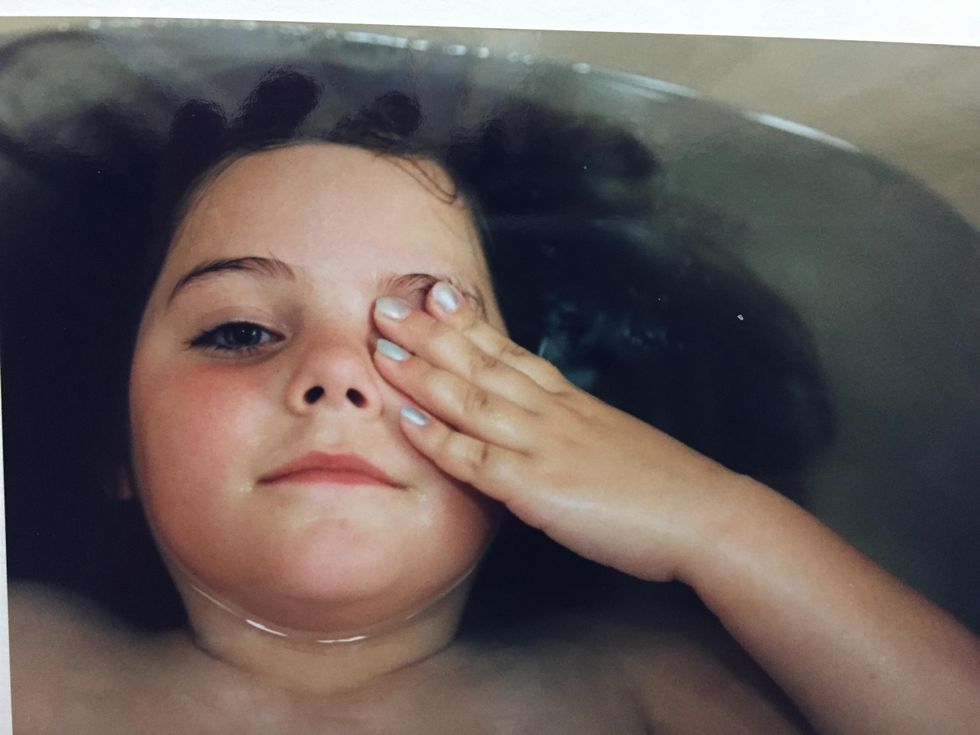
Annie as a child
"So much of fitting into a group of people is done through visual signaling via the aesthetic decisions we make. When I went to college [at UT Austin], I very much became a very specific Texas Southern sorority girl, which at the time meant that you were very tan, had perfect eyebrows, bright white teeth, and Tory Burch outfits. It wasn’t for me. But soon after, I met some of my closest friends, who I’m still friends with today, and they were a part of the music scene in Austin. Just experimenting with different hair and makeup looks to go to shows was really fun; it was influenced by glam rock, hippie culture, and the ‘60s. That’s when I really developed a sense of humor around my makeup and aesthetic decisions because it was this bizarro world where everybody was kind of a freak. It was a safe space, and I think, honestly, I wanted the attention. I was so inspired by everyone’s looks that it pushed me to try different things. I would do really big hair, or I would fill in my unibrow with mascara. It was my way of rebelling.
"For me, the night starts when you meet up with your best friends and you start getting ready. You’ll text each other, ‘What are you wearing?’ beforehand, and it’s your chance to transform into a different version of yourself through clothes and makeup. I love the level of detail involved and the process of searching out new techniques.
"When I moved to New York, no one batted an eyelash at the ugly beauty look that I was experimenting with at the time. But it was also cool moving to the city for the first time because I was exposed to so many models. I had always felt like this could never be my world, and it was really intimidating—I was 5’4 and worried about my body image constantly. I got bullied a lot when I was younger, not only about my body but my facial features were way too big for a child; I hadn’t really grown into my features yet. But then when I started to work with models in New York, it made me realize how everybody has stretch marks and everybody has their own weird hangups about their body, even these really beautiful women. It actually helped me with my own body image."
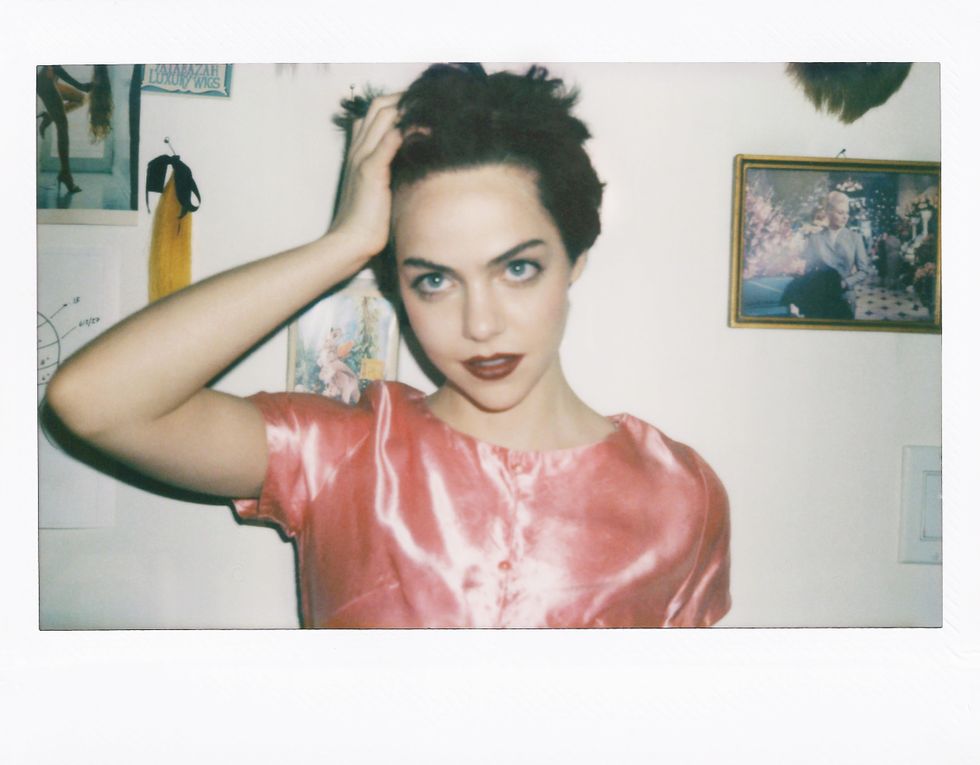
Annie during the years spent working at Into the Gloss and Glossier
"It’s kind of tied to why Soft Services is so exciting for me. We’re able to develop body care products for things that are still considered taboo and create the feeling that whatever you’re dealing with is normal.
"I think the customer is way more sophisticated than brands give them credit for—you don't have to have big pink flashing lights on your brand or talk using a bunch of emojis. And, vice versa. You don't have to put it in a metallic black tube and make it really discreet to say, ‘Oh, no, it's skin care for men. You don't have to feel like a pussy.’ Good design is genderless.
"We're trying to break the category open and approach our formulas so that they’re solving the issue that you have while also not exacerbating other body skin issues. Your body has fungus on it because it's under clothes, you're sweating—it’s a hot humid environment and your face doesn't deal with the same conditions. You have to approach formulation differently because a lot of common ingredients in skin care can actually feed the fungus, so you have to avoid those. Focusing solely on body has helped us create super-efficacious products.
"Having been an online editor [at XOVain and Into the Gloss], I'm inspired by the data behind the content. I would see patterns and figure out what stories really took off organically. What I realized through editorial is that nothing is niche. If you have this problem, there's gonna be thousands of other people dealing with it, too. And they're probably looking for a place to land when they're searching online. That's why we have Mass Index, which we always say is like a mix of WebMD and an editorial website that’s a bit more fun to read. We want people to find solutions that don't just involve buying products because we're not going to be able to make a product for everything, and you might not even need a product. You might be able to solve some of your body skin issues through small changes, like not washing conditioner out of your hair and onto your back."
"Things have changed so much since I started in the beauty industry. I think that the amount of choice people have is nice, but there are two sides to that coin: There’s so much overconsumption and waste that happens in the beauty industry. There are so many brands that don't need to exist. What I've learned in my career is to ask two questions before you put a product in for development: Does this already exist? And if it does, can we make it better? If not, then I think you should be more critical of whether or not you should go that route, not only because you're adding more junk to the Earth, but there might be like five other brands that make something even better. It’s not smart from a marketing perspective.
"It took us six months to convince ourselves to launch this brand because we didn't feel good about putting more physical goods into the world. We've consulted for a ton of brands who are all incredible. One of our last clients as consultants, before we decided to do Soft Services, was Hudson Hemp, a regenerative hemp farm that also worked on carbon sequestration. We learned so much about regenerative agriculture, which is closed-loop agriculture; you're not adding anything new into the system, and that's how you cut down on your carbon emissions. So how do you scale that up into an industry? I don't know, all the answers to and on paper, we’re probably failing miserably, just by existing as a brand. We do keep it in mind though, and we want to prove that you can produce in a more thoughtful way. We don't message sustainability a ton, but it's a huge investment internally in the company. We push for more information and ask questions like 'Where’s this ingredient sourced from?' And we send auditors to factories to make sure that it’s clean and that the workers are being treated well. We've been lucky to have partners that can help guide us and to have built a brand that we believe in."
Photos: Annie Kreighbaum and Soft Services
Want more stories like this?
Does The Beauty Industry Need a Czar?
Vanessa Hong on Identity, Body Dysmorphia, and the Importance of Social Media Breaks
How Long Gone’s Co-Host Is Bringing Back Bar Soap

